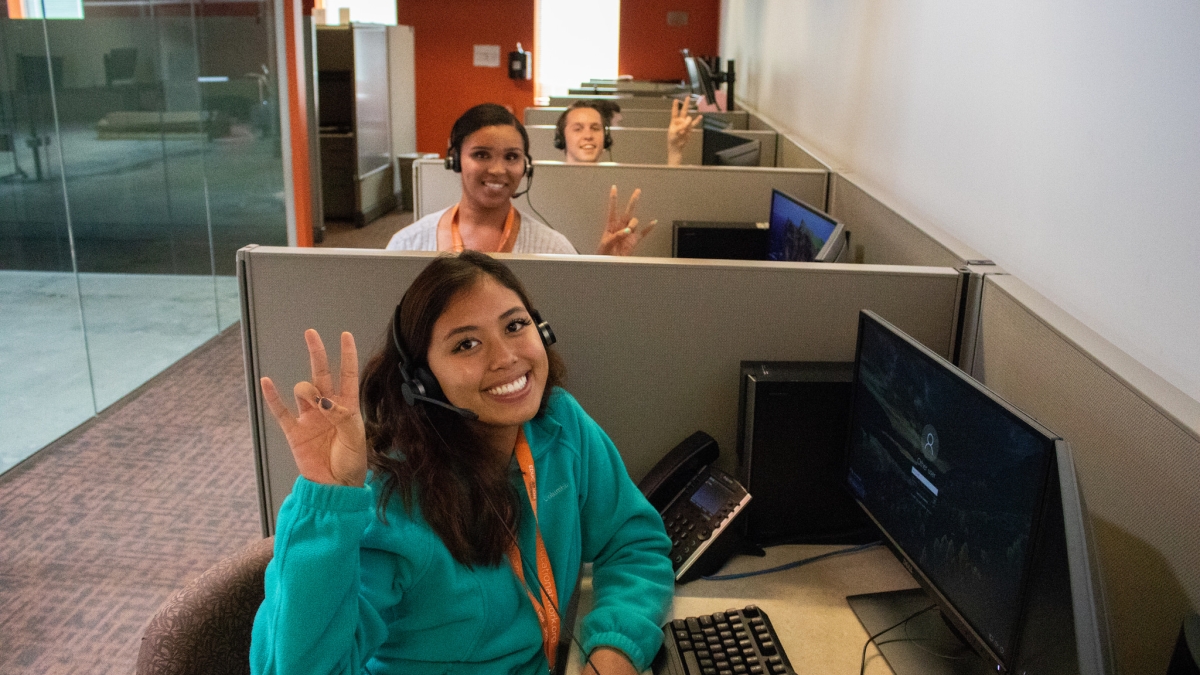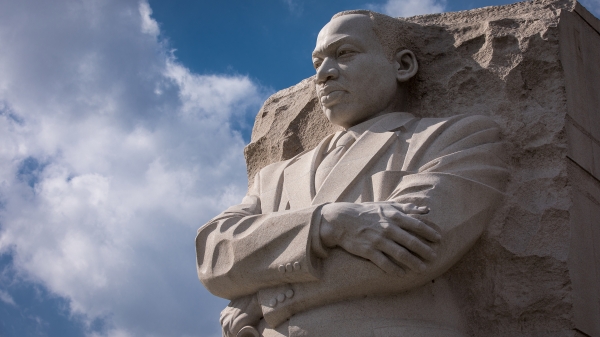Students stave off debt, build skills with part-time jobs through Education at Work

ASU students work at the newly opened Discover Financial Services center as part of the university's partnership with Education at Work. The program enables students to earn an hourly wage and tuition assistance while building professional skills. Photo by Spencer Brown
Since its launch in May 2016, the Education at Work partnership with Arizona State University has contributed to the success of more than 1,000 ASU students by helping them graduate with little to no debt while equipping them with the skills they need to secure great jobs after completing their degrees.
Education at Work focuses on students’ successes and operates by partnering with universities to employ students in part-time, resume-worthy jobs, supporting forward-thinking companies in customer care centers built on or near campuses.
Through this partnership, Education at Work has disbursed more than $3.5 million in wages and $1.2 million in tuition assistance to ASU students. On Aug. 10, Education at Work opened a new 17,000-square-foot facility in collaboration with ASU. Discover Financial Services, located at Fifth Street and Ash Avenue in Tempe has created an additional 275 student positions.
“The partnership offers part-time schedules in a student-centered setting,” said Edmundo Hidalgo, vice president of outreach partnerships with Educational Outreach and Student Services at ASU.
“Students never have to sacrifice their academics for work, contributing to higher GPAs among EAW students,” Hidalgo added.
At scale, approximately 625 students will be employed in the new facility creating an annual impact of more than $6 million in wages and tuition assistance to Sun Devils.
David Phan, a senior studying business, data analytics and marketing, said he joined because of the tuition assistance offered.
“The tuition assistance has made a massive difference,” Phan said. “I’ll be graduating with significantly less debt than what I was initially expecting. In addition, I can put my efforts toward my school work and spending time with the people I care about.”
Phan has also learned valuable skills through the program.
“Working with EAW has exposed me to the world of business and has taught me skills that I will forever use in all areas of my life. I think one of the most important is communication. This will help immensely over the course of my professional and educational career.”
Omnia Imam, an elementary education major, said she applied to EAW because she wanted to start her first job in a position that would shine on her resume and help her gain experience for her future career.
“I’m learning not to stress out so much, because I’m surrounded by amazing staff members that make student lives very easy,” Imam said. “To me, they are my second family.”
Students interested in the program can apply now to earn $10.50 an hour and up to $5,250 a year in tuition assistance.
Written by Logan Maro
More Sun Devil community

ASU names 2025 MLK Servant-Leadership Award recipients
The 2025 honorees have been named for Arizona State University's annual MLK celebration awards.The four awards — community,…

Comeback falls short, but Sun Devils can hold heads high
With 10 minutes left in the fourth quarter of Wednesday’s Peach Bowl, the Arizona State Sun Devils trailed the Texas Longhorns by…

7 words that define ASU quarterback Sam Leavitt: 'How great do you want to be?'
On a small whiteboard affixed to the outside of Sam Leavitt’s refrigerator are seven words:“How great do you want to be?”They are…